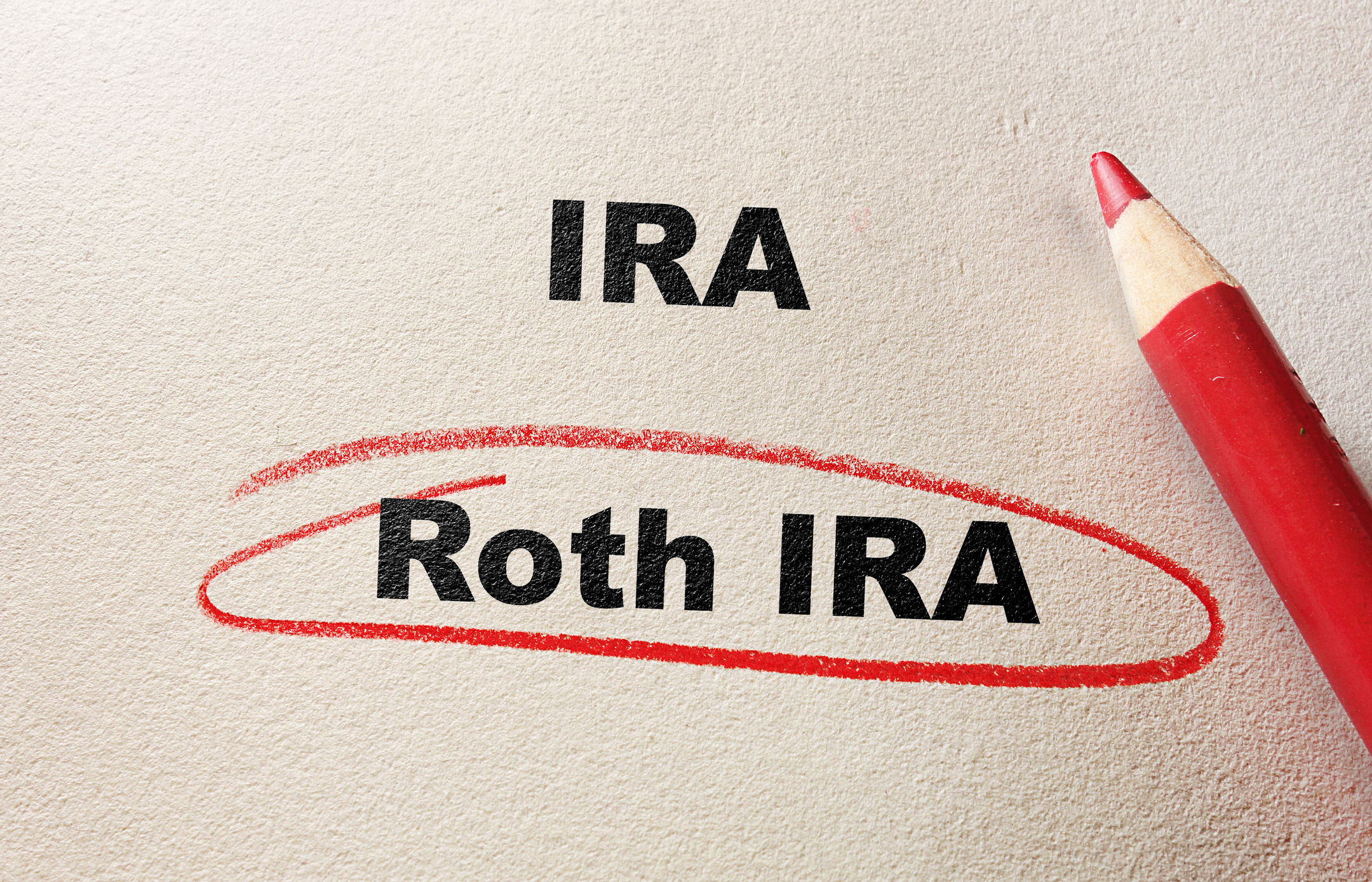COVID Hospitalization Rates See an Uptick As Winter Looms — The Kiplinger Letter
The elderly are still at risk of COVID hospitalization, despite a new Omicron booster and winter is right around the corner.

Profit and prosper with the best of Kiplinger's advice on investing, taxes, retirement, personal finance and much more. Delivered daily. Enter your email in the box and click Sign Me Up.
You are now subscribed
Your newsletter sign-up was successful
Want to add more newsletters?

Delivered daily
Kiplinger Today
Profit and prosper with the best of Kiplinger's advice on investing, taxes, retirement, personal finance and much more delivered daily. Smart money moves start here.

Sent five days a week
Kiplinger A Step Ahead
Get practical help to make better financial decisions in your everyday life, from spending to savings on top deals.

Delivered daily
Kiplinger Closing Bell
Get today's biggest financial and investing headlines delivered to your inbox every day the U.S. stock market is open.

Sent twice a week
Kiplinger Adviser Intel
Financial pros across the country share best practices and fresh tactics to preserve and grow your wealth.

Delivered weekly
Kiplinger Tax Tips
Trim your federal and state tax bills with practical tax-planning and tax-cutting strategies.

Sent twice a week
Kiplinger Retirement Tips
Your twice-a-week guide to planning and enjoying a financially secure and richly rewarding retirement

Sent bimonthly.
Kiplinger Adviser Angle
Insights for advisers, wealth managers and other financial professionals.

Sent twice a week
Kiplinger Investing Weekly
Your twice-a-week roundup of promising stocks, funds, companies and industries you should consider, ones you should avoid, and why.

Sent weekly for six weeks
Kiplinger Invest for Retirement
Your step-by-step six-part series on how to invest for retirement, from devising a successful strategy to exactly which investments to choose.
COVID-19 hospitalization rates continue to rise as the U.S. prepares another round of boosters. To help you understand what is going on in the healthcare sector and what we expect to happen in the future, our highly experienced Kiplinger Letter team will keep you abreast of the latest developments and forecasts (Get a free issue of The Kiplinger Letter or subscribe). You'll get all the latest news first by subscribing, but we will publish many (but not all) of the forecasts a few days afterward online. Here’s the latest…
An uptick in COVID-19 hospitalizations should not concern most people. But it’s increasingly a worry for the elderly. Since the pandemic has eased, the number of cases that wind up in the hospital is the best way to gauge the severity of what is left.
On July 5, 2023, the daily COVID-19 hospitalization rate hit its lowest level: 0.6 per 100,000 cases. By Sep. 2, it had ticked up to 1.3, a daily increase of 2,300. The trend is more pronounced for those over age 70, whose hospitalization rate has more than doubled to 6.3. COVID deaths have not yet risen but will likely follow suit.
From just $107.88 $24.99 for Kiplinger Personal Finance
Become a smarter, better informed investor. Subscribe from just $107.88 $24.99, plus get up to 4 Special Issues

Sign up for Kiplinger’s Free Newsletters
Profit and prosper with the best of expert advice on investing, taxes, retirement, personal finance and more - straight to your e-mail.
Profit and prosper with the best of expert advice - straight to your e-mail.
The true test of the pandemic’s resilience will be this winter when people are indoors together much of the time. Except for those over the age of 70, chances are that any mini-surge in infections will be only a nuisance. The Omicron variant that has pushed out other iterations of the virus has proved much less deadly.
A new booster targeting the latest versions of Omicron will be available in late September or early October and should be taken at least five months after the last bivalent booster.
This forecast first appeared in The Kiplinger Letter, which has been running since 1923 and is a collection of concise weekly forecasts on business and economic trends, as well as what to expect from Washington, to help you understand what’s coming up to make the most of your investments and your money. Subscribe to The Kiplinger Letter.
Related Content
Profit and prosper with the best of Kiplinger's advice on investing, taxes, retirement, personal finance and much more. Delivered daily. Enter your email in the box and click Sign Me Up.

David is both staff economist and reporter for The Kiplinger Letter, overseeing Kiplinger forecasts for the U.S. and world economies. Previously, he was senior principal economist in the Center for Forecasting and Modeling at IHS/GlobalInsight, and an economist in the Chief Economist's Office of the U.S. Department of Commerce. David has co-written weekly reports on economic conditions since 1992, and has forecasted GDP and its components since 1995, beating the Blue Chip Indicators forecasts two-thirds of the time. David is a Certified Business Economist as recognized by the National Association for Business Economics. He has two master's degrees and is ABD in economics from the University of North Carolina at Chapel Hill.
-
 Dow Adds 1,206 Points to Top 50,000: Stock Market Today
Dow Adds 1,206 Points to Top 50,000: Stock Market TodayThe S&P 500 and Nasdaq also had strong finishes to a volatile week, with beaten-down tech stocks outperforming.
-
 Ask the Tax Editor: Federal Income Tax Deductions
Ask the Tax Editor: Federal Income Tax DeductionsAsk the Editor In this week's Ask the Editor Q&A, Joy Taylor answers questions on federal income tax deductions
-
 States With No-Fault Car Insurance Laws (and How No-Fault Car Insurance Works)
States With No-Fault Car Insurance Laws (and How No-Fault Car Insurance Works)A breakdown of the confusing rules around no-fault car insurance in every state where it exists.
-
 Should You Do A Roth IRA Conversion? Nine Things to Consider
Should You Do A Roth IRA Conversion? Nine Things to ConsiderThe Tax Letter Thinking of converting a traditional IRA to a Roth IRA? The Kiplinger Tax Letter Editor highlights nine factors you should consider before making a move.
-
 What DOGE is Doing Now
What DOGE is Doing NowThe Kiplinger Letter As Musk's DOGE pursues its ambitious agenda, uncertainty and legal challenges are mounting — causing frustration for Trump.
-
 Universal Savings Accounts Are Like Roth IRAs, But With a Twist
Universal Savings Accounts Are Like Roth IRAs, But With a TwistThe Tax Letter Republican lawmakers and conservative think tanks are proposing a new type of tax-advantaged savings account. Think Roth IRAs, but not just for retirement.
-
 Aging in Place Will Be Big Business for Home Builders
Aging in Place Will Be Big Business for Home BuildersThe Kiplinger Letter Many people will be looking to make their homes aging-friendly in the years to come.
-
 Five Ways to Fund Medicare Part A
Five Ways to Fund Medicare Part AThe Tax Letter Higher taxes can help stave off the projected 2036 insolvency of Medicare's Hospital Insurance trust fund.
-
 QCDs Are a Tax-Smart Way for Retirees To Donate to Charity
QCDs Are a Tax-Smart Way for Retirees To Donate to CharityThe Tax Letter With QCDs, retirees can save on taxes by making donations from their IRAs directly to charity. Here's what you need to know about qualified charitable distributions.
-
 Tax Tips for Transferring Excess 529 Plan Funds to Roth IRAs: The Tax Letter
Tax Tips for Transferring Excess 529 Plan Funds to Roth IRAs: The Tax LetterThe Tax Letter 529 plans can help blunt the cost of paying for college. But if you want to use leftover funds there are some tax tips to bear in mind.
-
 How to Report QCDs on Your Tax Return: The Tax Letter
How to Report QCDs on Your Tax Return: The Tax LetterThe Tax Letter Qualified charitable distributions, otherwise known as QCDs, can be tricky when it comes to tax reporting. We've got some pointers to help with filing.